Top 7 Health Benefits of Beetroots
Beetroots are colorful and useful vegetables. They are distinguished by their earthy flavor and scent. Beetroots are incredibly nutritious and rich with ... read more...critical vitamins, minerals, and plant compounds, many of which have therapeutic benefits, in addition to adding a splash of color to your meal. Here are the best beetroot health advantages.
-
Beets have an excellent nutritional profile. They are minimal in calories while being abundant in essential vitamins and minerals. In fact, they contain a little amount of practically every vitamin and mineral your body needs. Here’s an overview of the nutrients found in a 3.5-ounce (100-gram) serving of boiled beetroot:
- Calories: 44
- Protein: 1.7 grams
- Fat: 0.2 grams
- Carbs: 10 grams
- Fiber: 2 grams
- Folate: 20% of the Daily Value (DV)
- Manganese: 14% of the DV
- Copper: 8% of the DV
- Potassium: 7% of the DV
- Magnesium: 6% of the DV
- Vitamin C: 4% of the DV
- Vitamin B6: 4% of the DV
- Iron: 4% of the DV
Beets are especially high in folate, a nutrient that is essential for growth, development, and heart health. They also have a high manganese content, which aids with bone-building, nutrition metabolism, brain function, and other processes. They're also high in copper, an essential mineral for energy generation and the creation of some neurotransmitters.
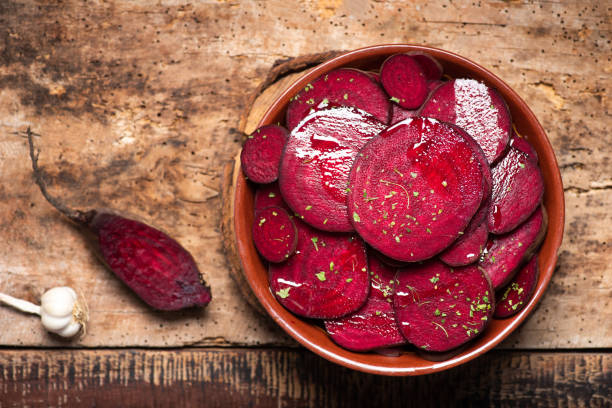
Many nutrients and few calories 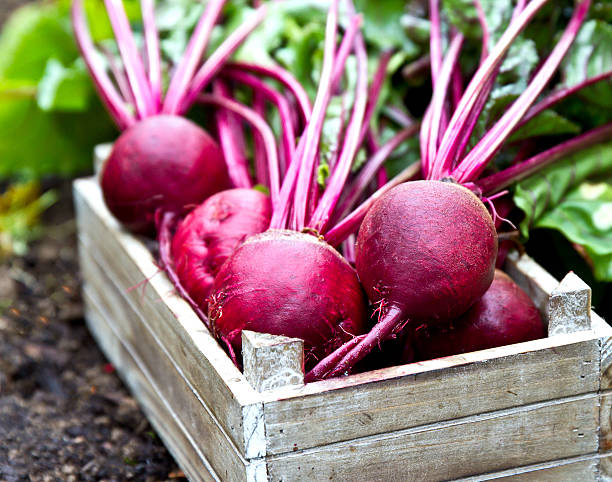
Many nutrients and few calories -
Beets have been extensively researched for their potential to lower high blood pressure, which is a key risk factor for heart disease. According to certain research, beetroot juice can considerably drop both systolic and diastolic blood pressure readings. The effect appears to be stronger for systolic blood pressure, or pressure when your heart contracts, rather than diastolic blood pressure, or pressure when your heart relaxes. Furthermore, raw beets may have a stronger impact than cooked beets.
The high content of nitrates in this root vegetable is most likely responsible for its blood-pressure-lowering properties. Dietary nitrates are turned in your body into nitric oxide, a chemical that dilates blood vessels and lowers blood pressure. Beets are high in folate as well. Despite inconsistent findings, numerous studies show that increasing your folate consumption might dramatically reduce your blood pressure levels. Keep in mind, however, that the impact of beets on blood pressure is just transient. As a result, in order to get long-term heart-health advantages, you must take them on a regular basis.
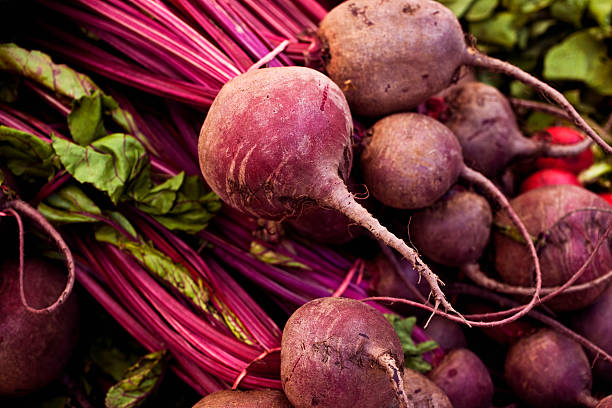
Could help keep your blood pressure in check 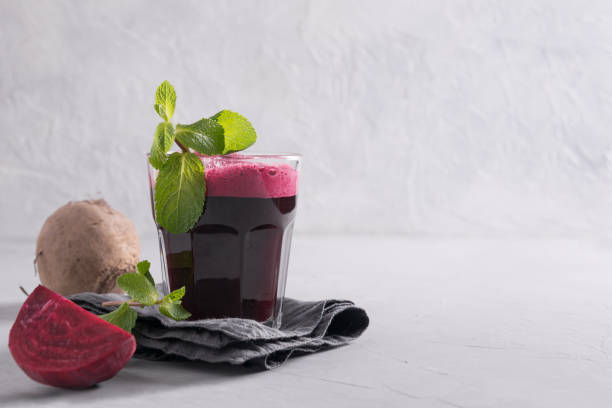
Could help keep your blood pressure in check -
Several studies indicate that dietary nitrates present in beets may improve athletic performance. Nitrates appear to improve physical performance by increasing the efficiency of mitochondria, which produce energy in your cells. According to one study, beetroot juice may improve endurance by lengthening the time it takes to become weary, enhancing cardiorespiratory performance, and increasing athlete efficiency.
Beet juice has also been demonstrated to boost cycling performance and increase oxygen consumption by up to 20%. It's vital to remember that blood nitrate levels peak 2–3 hours after eating beets or drinking beet juice. To optimize their potential advantages, drink them a couple of hours before exercising or competition.
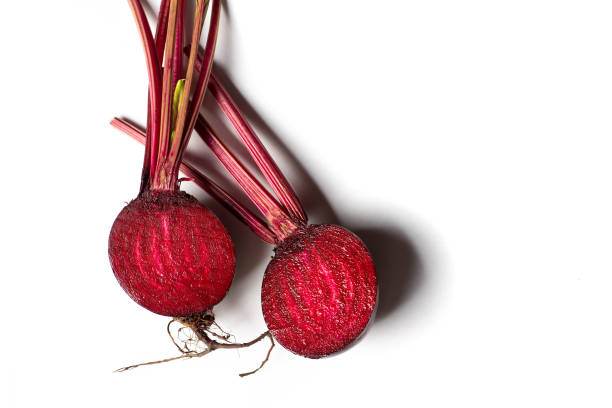
Can improve athletic performance 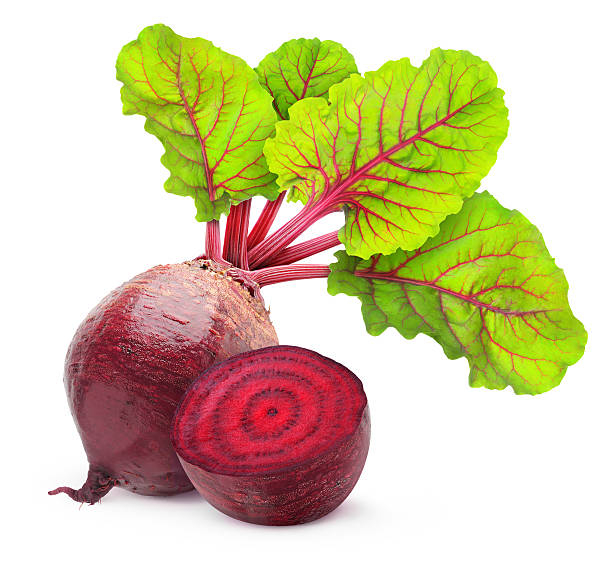
Can improve athletic performance -
Beets contain pigments known as betalains, which have anti-inflammatory qualities. Chronic inflammation has been linked to illnesses such as obesity, heart disease, liver disease, and cancer, so this might help in a variety of ways. In one research of 24 persons with high blood pressure, eating 8.5 ounces (250 mL) of beet juice for two weeks dramatically lowered many inflammatory indicators, including C-reactive protein (CRP) and tumor necrosis factor-alpha (TNF-a).
Furthermore, an older 2014 research on persons with osteoarthritis – a disorder that causes joint inflammation — found that betalain capsules manufactured from beetroot extract decreased pain and stiffness. Beetroot juice and extract have also been found to lessen renal inflammation in rats treated with harmful substances. More human research is needed to evaluate whether eating beets in moderation as part of a balanced diet has the same anti-inflammatory effects.
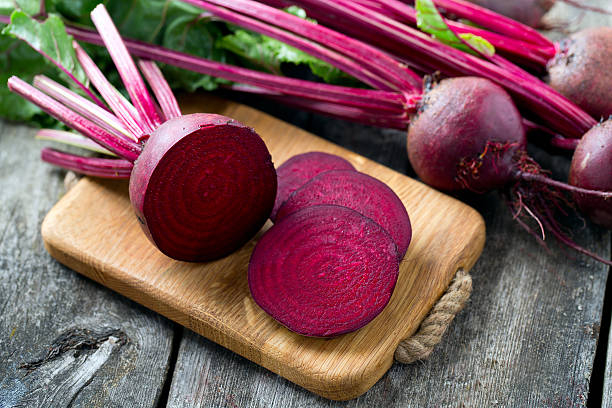
May help fight inflammation 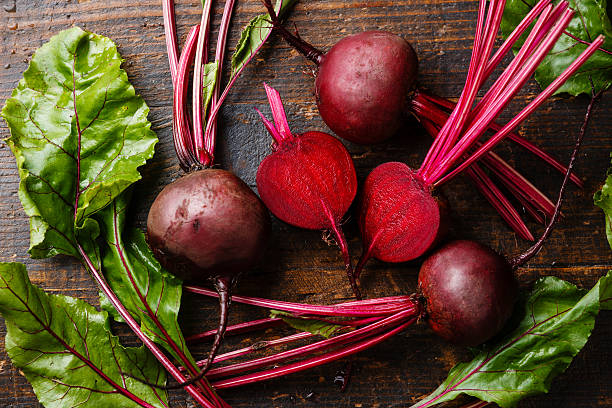
May help fight inflammation -
Mental and cognitive skills normally deteriorate with age, increasing the risk of neurodegenerative illnesses such as dementia. Beet nitrates may boost brain function by encouraging blood vessel dilatation and so increasing blood flow to the brain. Beets, in particular, have been demonstrated to increase blood flow to the frontal lobe of the brain, which is related to higher-level thinking such as decision making and working memory.
Furthermore, research on persons with type 2 diabetes indicated that those who ingested 8.5 ounces (250 mL) of beetroot juice daily for two weeks performed 4 percent better on a cognitive function test than those who did not. More study is needed, however, to discover whether beets may be used to improve brain function and lower the risk of dementia in the general population.

May support brain health 
May support brain health -
Beets offer a number of nutritional qualities that might make them an excellent complement to a healthy diet. For starters, they're low in fat and calories while being high in water, which might help you balance your energy intake. Increased consumption of low-calorie foods, such as this root vegetable, has also been linked to weight loss. Furthermore, despite their modest calorie level, they have a considerable protein and fiber content. Both of these nutrients can help you attain and maintain a healthy weight.
Beet fiber may also benefit digestive health, reduce hunger, and enhance feelings of fullness, lowering your overall calorie consumption. Furthermore, by incorporating them into smoothies or other dishes, you may quickly boost your intake of fruits and vegetables while improving the quality of your diet.
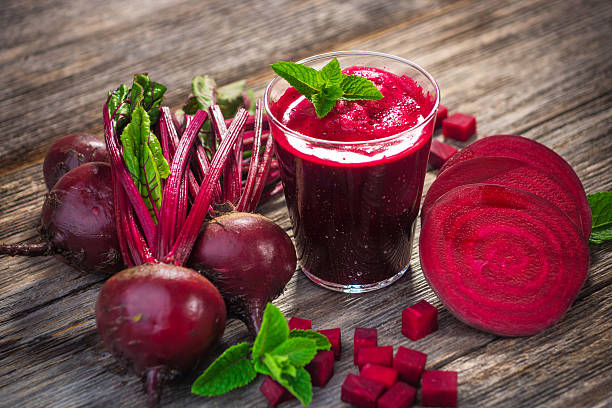
May help balance energy intake 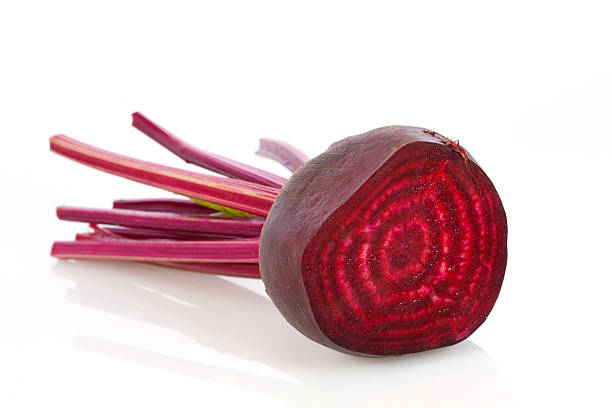
May help balance energy intake -
Beetroot has various anti-cancer chemicals, including betaine, ferulic acid, rutin, kaempferol, and caffeic acid. Although additional study is required, test-tube experiments have suggested that beetroot extract can decrease cancer cell development and growth. Several additional studies have discovered that having greater betaine levels in the blood may be connected with a decreased risk of acquiring cancer.
It is crucial to note, however, that most investigations on the subject have employed isolated chemicals rather than beetroot. As a result, more study on beetroot consumption as part of a healthy diet and cancer risk is required. According to certain research, some chemicals contained in beets may have cancer-fighting effects. Still, further study is needed to fully grasp this potential link.

May have some anti-cancer properties 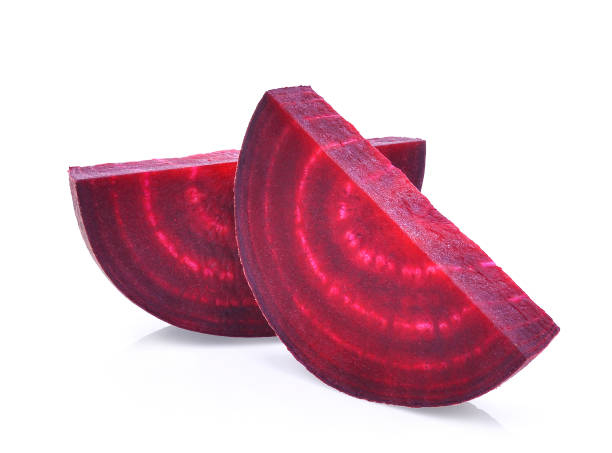
May have some anti-cancer properties




























